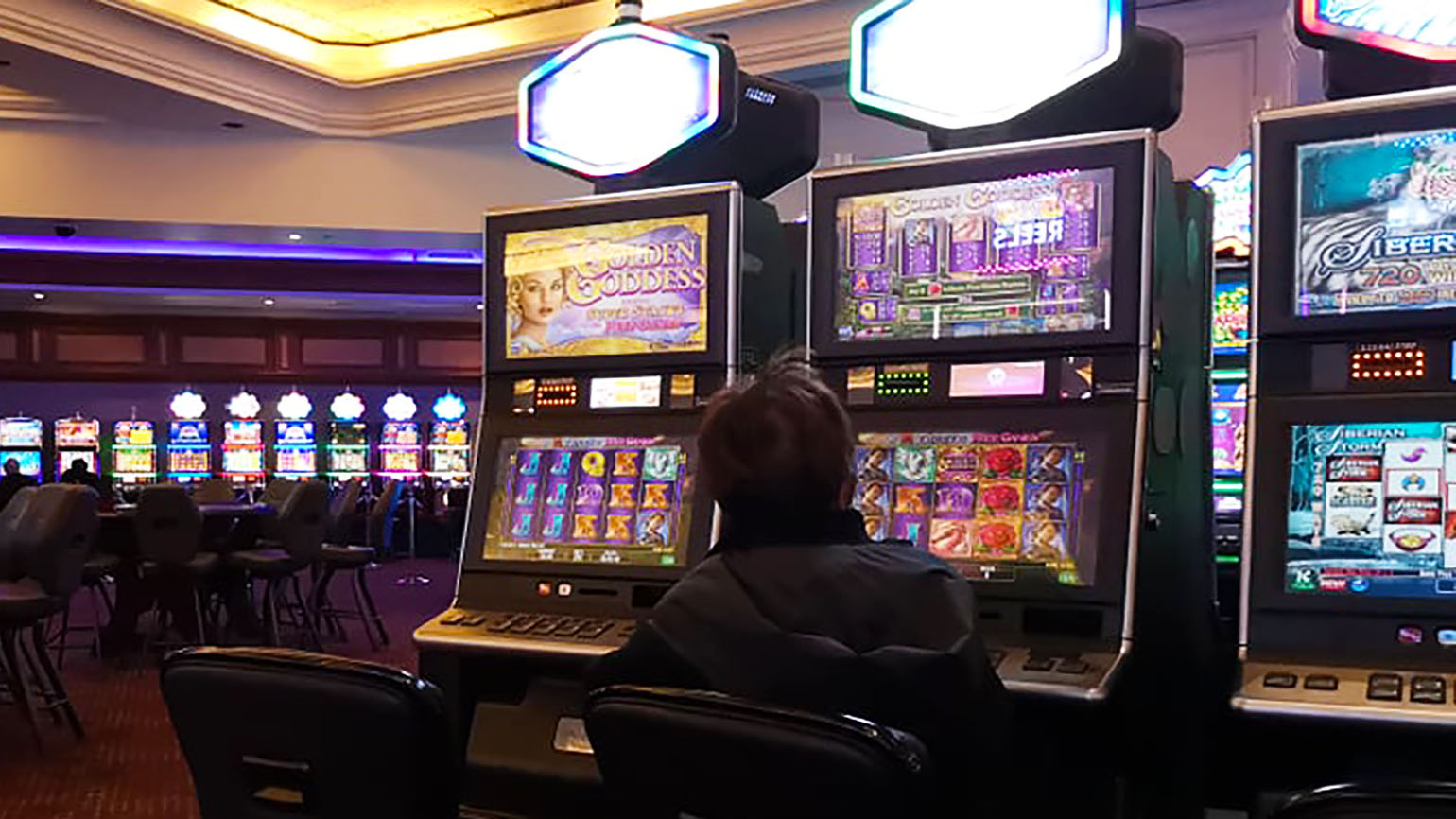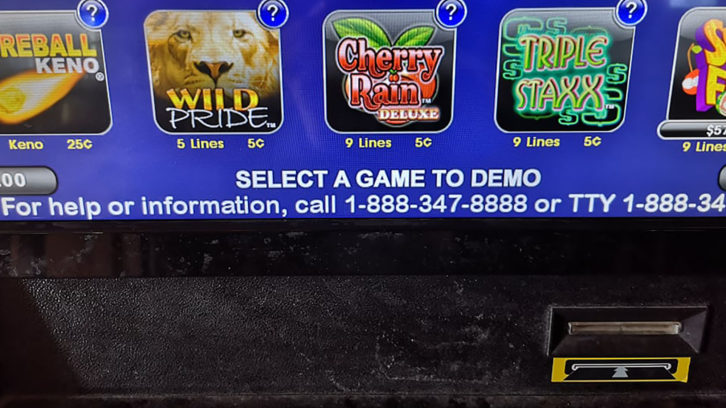Addictions therapist questions why Nova Scotia Gaming Corp. runs gambling literacy campaign
'They make a lot of their money off problem gamblers,' says Elizabeth Stephen

caption
A gambler sits at a slot machine at Casino Nova Scotia.A gambling addictions therapist has doubts about a gambling literacy campaign being developed for the Nova Scotia Gaming Corporation (NSGC).
Elizabeth Stephen was shocked to hear that the NSGC will be running this campaign. The therapist, who has treated gambling addiction in Halifax for 20 years, is skeptical that NSGC is the right candidate to teach gambling literacy.
“Their goal is to make money, and they actually have no business doing this part of it,” said Stephen in an interview. “That really should be coming from the Department of Health, but the government has it set up that way because, of course, they want to keep making money.”
The gambling literacy campaign is organized yearly by the Crown corporation. In 2018 and 2019, The NSGC spent $6.6 million out of their $145.2 million revenue on “responsible gambling campaigns.”
Nova Scotia has two casinos, 1,012 ticket lottery retailers, and 2,030 video lottery ticket machines (VLTs), with 651 of them located in Mi’kmaw communities.
A 2013 study indicated around 50,000 Nova Scotians were at gambling-related risk, and approximately 5,000 were experiencing financial and social harm due to gambling.
In 2014 and 2015, Auditor General Michael Pickup made recommendations to the Department of Health to address gambling rates. He requested the department provide accurate and current information about problem gambling rates. He also recommended the department set goals that could determine if prevention efforts and treatment were effective.
In 2018, Pickup followed up on both of these proposed recommendations and determined they were not met.
According to a request for proposals, this new NSGC campaign aims to increase the public’s understanding of how the games work and the unpredictability of outcomes. It also recommends people gamble for entertainment, not money.
But Stephen stresses this individual-responsibility approach does little to address problem gambling.
“It’s not that they’re saying anything wrong, and they probably won’t with this literacy thing, but the onus is completely on the individual who does the gambling,” said Stephen.
“There will be no recognition that we gamble in an environment. We gamble with many factors. The reality is that they make a lot of their money off problem gamblers.”
Stephen believes the prevalence of VLTs in the province compounds problem gambling.
“It’s very accessible in Nova Scotia because they put VLTs in the bars that are in the lower socio-economic parts of the province,” said Stephen.

caption
A gambling support line displayed on a video lottery terminal.She believes addictions therapists should be consulted when designing a gambling literacy campaign because the NSGC won’t acknowledge its part in gambling addiction.
“They’re not going to say, ‘If you gamble on the VLT machines, you’re at high risk for developing a problem,” said Stephen.
But the number of therapists with adequate training to treat gambling addictions has declined in Nova Scotia, said Stephen.
“We were involved in a lot of the education and campaigns and that all ended about eight years ago,” said Stephen.
The NSGC does provide the phone number to the Gambling Support Network inside the casino in Halifax and on the sides of all VLT machines. But Stephen said some problem gamblers don’t feel safe using these services.
“Some people will call it because they’re desperate, but other people are suspicious of calling it because they think it’s just something run by the industry. So, can you really trust it? And they don’t,” said Stephen.
Also, the Gambling Support Network only offers help through the phone rather than one-on-one, consistent counselling.
Martine Marleau, a representative with NSGC, explained what the literacy campaign might look like.
In an email, she said: “We are expecting that it will include a creative concept, media buy, activation activities, a dedicated week of activities in the fall and other campaign ideas that leverage our existing responsible gambling programs and venues.”
The tender closes on March 6.
About the author
Michael Trombetta
Michael is a student writer at King's College. He's an English literature graduate of Ryerson University. Interested in people, our environment,...
Nick Cantar
Nick Cantar is a journalist for The Signal. He is curious about all kinds of stories. When not working, Nick enjoys being outdoors.
